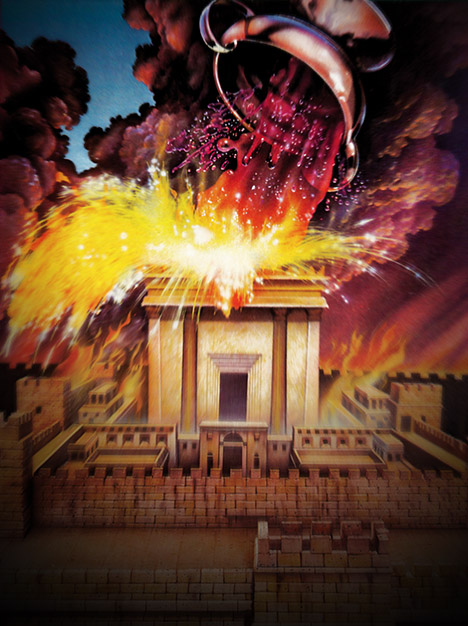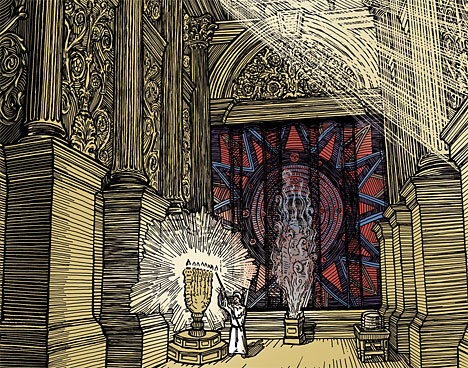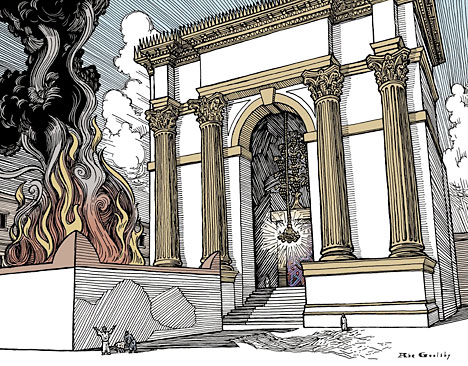Jun
28
2014

or Where Kenneth Gentry Is Wrong on the Revelation
Part 1 here.
I’ve been meaning to write this post since I wrote Part 1 (over two years ago). A friend’s recent question concerning Kenneth Gentry’s lectures on the Revelation encouraged me to bite the bullet and bust a gut and get it done. The question is this: Is the Revelation to be interpreted in the light of Josephus’ Jewish War, or in the light of the Bible itself?
Continue reading
6 comments | tags: AD70, Ark of the Covenant, Covenant curse, Covenant Theology, Deuteronomy, James B. Jordan, Kenneth Gentry, Leviticus, Literary Structure, Peter Leithart, Revelation, Revelation 20, Thessalonians | posted in Against Hyperpreterism, Bible Matrix, Biblical Theology, The Last Days
Dec
9
2011

The Living Dead and the Dead Living
Creation: In part 1 we saw that the theme of the first stanza of 2 Thessalonians 2 was the “Sabbath” rest of the church. Paul writes to remove the alarm caused by the “conspiracy theorists” who attempted to disturb it.
Division: The second stanza concerned the splitting of the church into two — those who would persevere despite the growing threat of tribulation throughout the empire [1], and those who would succumb to their fears. The attacks would culminate in the completion of Herod’s Temple and the Nero’s burning of Rome in AD64. The first threw doubt upon the words of Christ concerning the Temple, and the second, though hardly believed, was an excuse to scapegoat this new Jew-Gentile sect, now legally separated from the protection afforded to Jews by Rome. The gospel tore Judaism in two. Then it united those believing Jews with Gentiles. But as in the wilderness, new Israel would be threshed and purified.
Continue reading
Comments Off | tags: AD70, Atonement, Booths, Dispensationalism, Feasts, James Jordan, Literary Structure, Paul, Ray Sutton, Revelation, Ten Commandments, Thessalonians | posted in Bible Matrix, Biblical Theology, The Last Days
Dec
7
2011

This post concerns the Covenant-literary structure of 2 Thessalonians 2. The context and audience are first century, but it amazes me how willing we modern Christians are to do intricate hermeneutical acrobatics to avoid the obvious conclusion that the particular “coming” of Christ referred to here was also a first century event – the end of the Old Covenant in AD70.
A reasonably close look at the text makes it inescapable. A very close analysis makes it inexcusable, especially once we are versed in the literary mechanics of the Bible Matrix. Continue reading
1 comment | tags: AD70, Atonement, Circumcision, Covenant curse, Covenant Theology, Hermeneutics, Herod, High Priest, Jericho, Paul, Thessalonians, Urim and Thummim | posted in Bible Matrix, Biblical Theology, Ethics, The Last Days




























